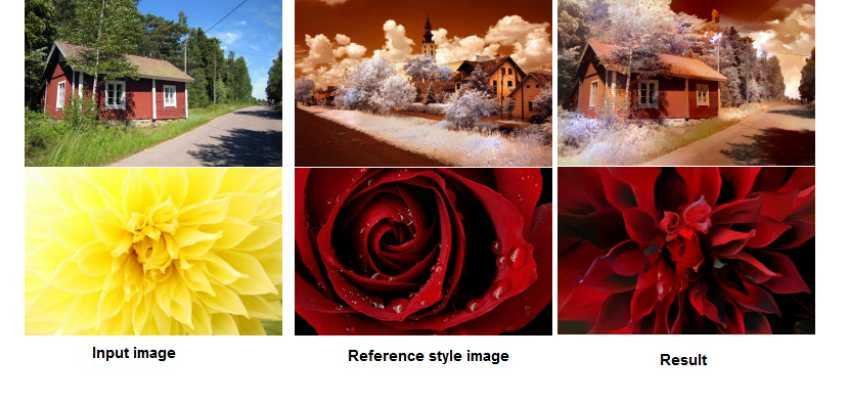Adobe has reportedly developed a technology to an incredible extent processingof images, which is able to transfer the style of one photo to another. The company teamed up with researchers from Cornell University and have come up with one of the coolest developments in imaging technology.
Sure, there are many other tools you can apply, let's say Van Gogh's style in your photos. But instead of just applying a few predefined settings to a photo, Adobe's new technology can imitate just colors and lighting in a photo from a reference image.
Suppose you have a nice image with not so bright colors and you want it to look like an already photoshopped image you saw in Internet with vivid colors.
Or maybe you saw a fantasy picture somewhere with a faded sunset.
Let's face it: you will never have the same effect as your camera. But with the new technology of the company, you can edit the sunset in a photo to borrow the style of the fantasy image you admire.
The impressive algorithm developed by Adobe can make great adjustments that you probably would have missed if you hand-crafted the photo. For example, the new algorithm will ensure that reflexes are absolutely accurate.
The researchers reported that they use deep learning methods (deep learning) to achieve any result, especially when it comes to methods of capturing light and colors from the reference image.
Seeing the awesome results of this technology we want to hope that at some point Adobe will make the new technology available maybe in Photoshop Lightroom for anyone who wants to convert their photos with a few clicks of buttons.





